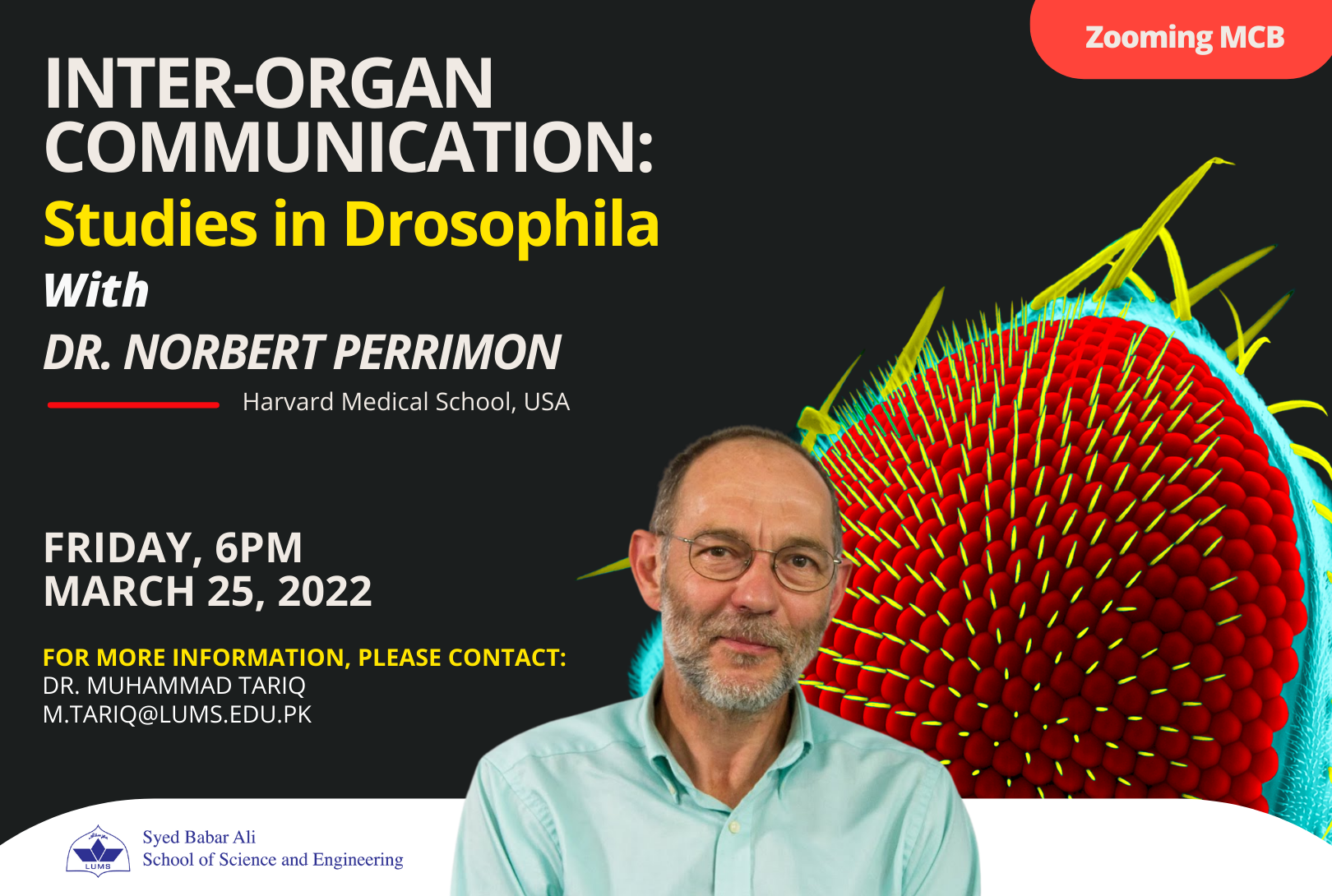
Event date:
Mar
25
2022
6:00 pm
Inter-organ communication: Studies in Drosophila
Speaker(s)
Prof. Dr. Norbert Perrimon from Harvard
Abstract
I will discuss our ongoing studies to identify and characterize communication pathways between major organs in Drosophila. Organ-to-organ communications are critical to living systems and play major roles in homeostasis. For example, the vertebrate CNS receives information regarding the status of peripheral metabolic processes via hormonal signaling and direct macromolecular sensing. In addition, skeletal muscles produce various myokines that influence metabolic homeostasis, lifespan, and the progression of age-related diseases and aging in non-muscle tissues. Using genetic screening, transcriptome analyses and proteomic approaches, we are identifying and characterizing secreted factors by which organs communicate their physiological state to others in both homeostasis and altered metabolism, as well as tumor models. These studies are providing fundamental insights into how biological processes observed in one tissue/organ (e.g., decreased cellular metabolism, mitochondrial dysfunction) influence the state of other tissues/organs.
Dr. Perrimon has 30 years of experience in the fields of developmental genetics, signal transduction and genomics. By developing, improving, and applying a number of genetic techniques (germline clones, FLP/FRT, Gal4/UAS, CRISPR, etc.), he identified many key components of the Receptor Tyrosine Kinases, JAK/STAT, Wnt, Hedgehog, and Notch signaling pathways. His group established high-throughput genome-wide RNAi screens and pooled CRISPR screens to systematically interrogate the entire Drosophila genome in various cell-based assays. In 2003, he created the Drosophila RNAi Screening Center (DRSC) at Harvard Medical School to make this technology available to the community. In addition, in 2008, he initiated the Transgenic RNAi Project (TRiP) to generate transgenic RNAi lines for the community using optimized shRNA vectors that his lab developed, and more recently transgenic gRNA lines for CRISPR loss of function and gain of function screens. Currently, his lab is applying large-scale RNAi and proteomic methods to obtain a global understanding to the structure of a number of signaling pathways and their cross-talks. In addition, he is studying the roles of signaling pathways in homeostasis and tissue remodeling in Drosophila muscles and gut stem cells, as well as hormonal systems involved in inter-organ communication. Since 2015, he has been the PI of the Drosophila database FlyBase. Dr. Perrimon has trained more than 115 students and postdoctoral fellows, most of whom currently hold academic positions.

